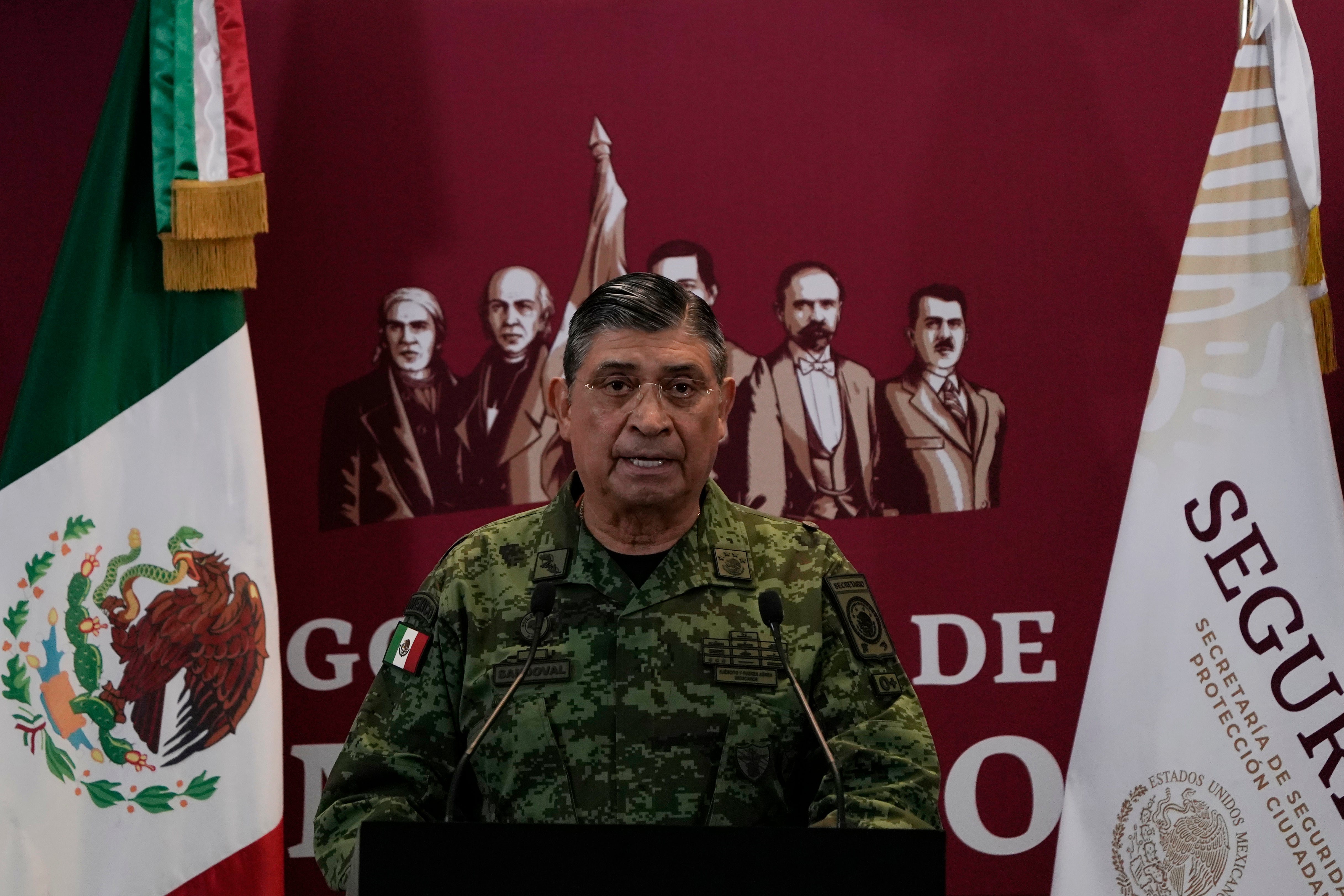Mexico's arrest of cartel security boss who attacked army families' complex was likely personal
The U.S. government has thanked Mexico for arresting a hyper violent, alleged Sinaloa cartel security chief this week

Your support helps us to tell the story
From reproductive rights to climate change to Big Tech, The Independent is on the ground when the story is developing. Whether it's investigating the financials of Elon Musk's pro-Trump PAC or producing our latest documentary, 'The A Word', which shines a light on the American women fighting for reproductive rights, we know how important it is to parse out the facts from the messaging.
At such a critical moment in US history, we need reporters on the ground. Your donation allows us to keep sending journalists to speak to both sides of the story.
The Independent is trusted by Americans across the entire political spectrum. And unlike many other quality news outlets, we choose not to lock Americans out of our reporting and analysis with paywalls. We believe quality journalism should be available to everyone, paid for by those who can afford it.
Your support makes all the difference.The U.S. government thanked Mexico for arresting a hyper violent alleged Sinaloa cartel security chief, but according to details released Friday, the detention may have been highly personal for the Mexican army.
Defense Secretary Luis Cresencio Sandoval said Nestor Isidro Pérez Salas, who was arrested Wednesday, had ordered a 2019 attack on an unguarded apartment complex where soldiers’ families lived.
“He was the one who ordered the attack ... against our dependents, our families,” Sandoval said.
The Oct. 17, 2019 attack was a result of a humiliating failed effort to capture Sinaloa cartel leader Ovidio Guzman, one of the sons of imprisoned drug lord Joaquin “El Chapo” Guzman. Pérez Salas served as head of security for Guzman and his brothers, who are collectively known as the “Chapitos.”
Soldiers caught Guzman but later were ordered to release him to avoid bloodshed.
In order to pressure the army to release Guzman, cartel gunmen had surrounded the army families' housing complex in Culiacan, the capital of Sinaloa, and sprayed it with gunfire. They took one soldier hostage, burst into four apartments looking for more potential hostages, and tossed in two hand grenades that failed to explode.
The army had apparently relied on an unwritten rule that soldiers' wives and children were not to be targeted. “It was an area that was not even guarded,” Sandoval said.
In January, when soldiers finally managed to detain Ovidio Guzman, Pérez Salas also allegedly participated in setting off violence that left 30 people dead, including 10 military personnel.
The army was forced to use Black Hawk helicopter gunships against the cartel’s truck-mounted .50-caliber machine guns. Cartel gunmen hit two military aircraft, forcing them to land, and sent gunmen to the city’s airport, where military and civilian aircraft were hit by gunfire.
Sandoval revealed Friday that there had been a special operation that day to get Pérez Salas, but it failed.
The army continued to follow his movements, and later tried to detain him a second time, but “he was able to escape,” Sandoval said.
The third time was a charm; video posted on social media showed that Pérez Salas was surrounded but managed to climb onto the roof of a house before he was caught Wednesday.
The U.S. Drug Enforcement Administration had posted a $3 million reward for the capture of Pérez Salas, though it was unclear if that will be distributed to the army and National Guard forces that caught him this week.
President Joe Biden issued a statement Thursday praising the arrest. U.S. prosecutors have asked that Pérez Salas be extradited — as his boss Ovidio Guzman was in September — to face U.S. drug charges.
“These arrests are testament to the commitment between the United States and Mexico to secure our communities against violence, counter the cartels, and end the scourge of illicit fentanyl that is hurting so many families,” Biden wrote.
But it appears Pérez Salas's arrest was personal for the Mexican army.
“He was also responsible for a series of attacks against military personnel that caused a significant number of casualties,” Sandoval said.
Pérez Salas is wanted on U.S. charges of conspiracy to import and distribute fentanyl in the United States. But he also allegedly left a trail of killings and torture of police and civilians.
An indictment in the Southern District of New York says Pérez Salas allegedly participated in the torture of a Mexican federal agent in 2017. It said he and others tortured the man for two hours, inserting a corkscrew into his muscles, ripping it out and placing hot chiles in the wounds.
According to the indictment, the Ninis — the gang of gunmen led by Pérez Salas and Jorge Figueroa Benitez — carried out other gruesome acts of violence as well.
The Ninis would take captured rivals to ranches owned by the Chapitos for execution, it said.
“While many of these victims were shot, others were fed, dead or alive, to tigers” belonging to the Chapitos, “who raised and kept tigers as pets,” according to the indictment.
And while the Sinaloa cartel does some lab testing on its products, the Ninis conducted more grisly human testing on kidnapped rivals or addicts who are injected until they overdosed.
____
Follow AP’s coverage of Latin America and the Caribbean at https://apnews.com/hub/latin-america